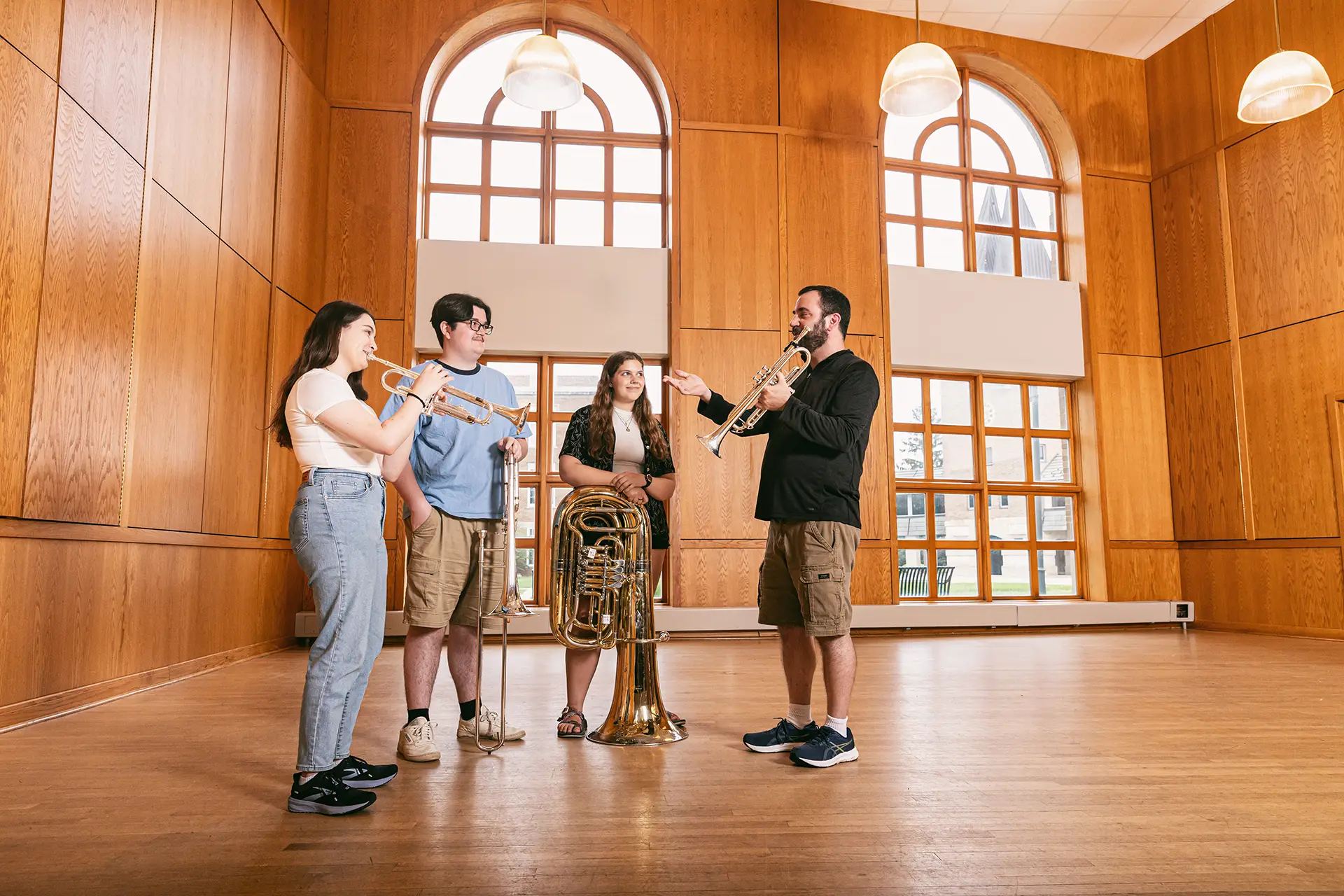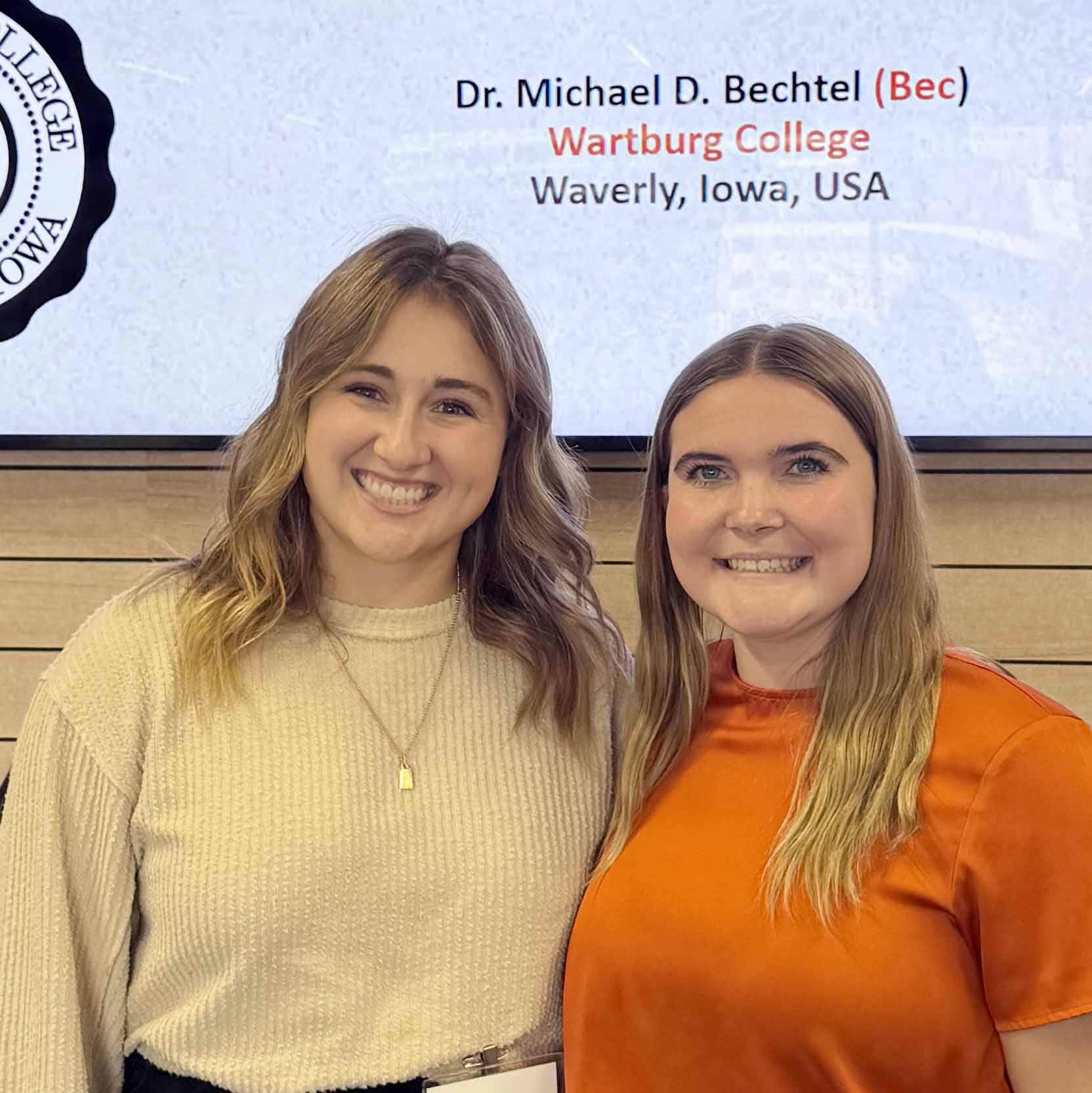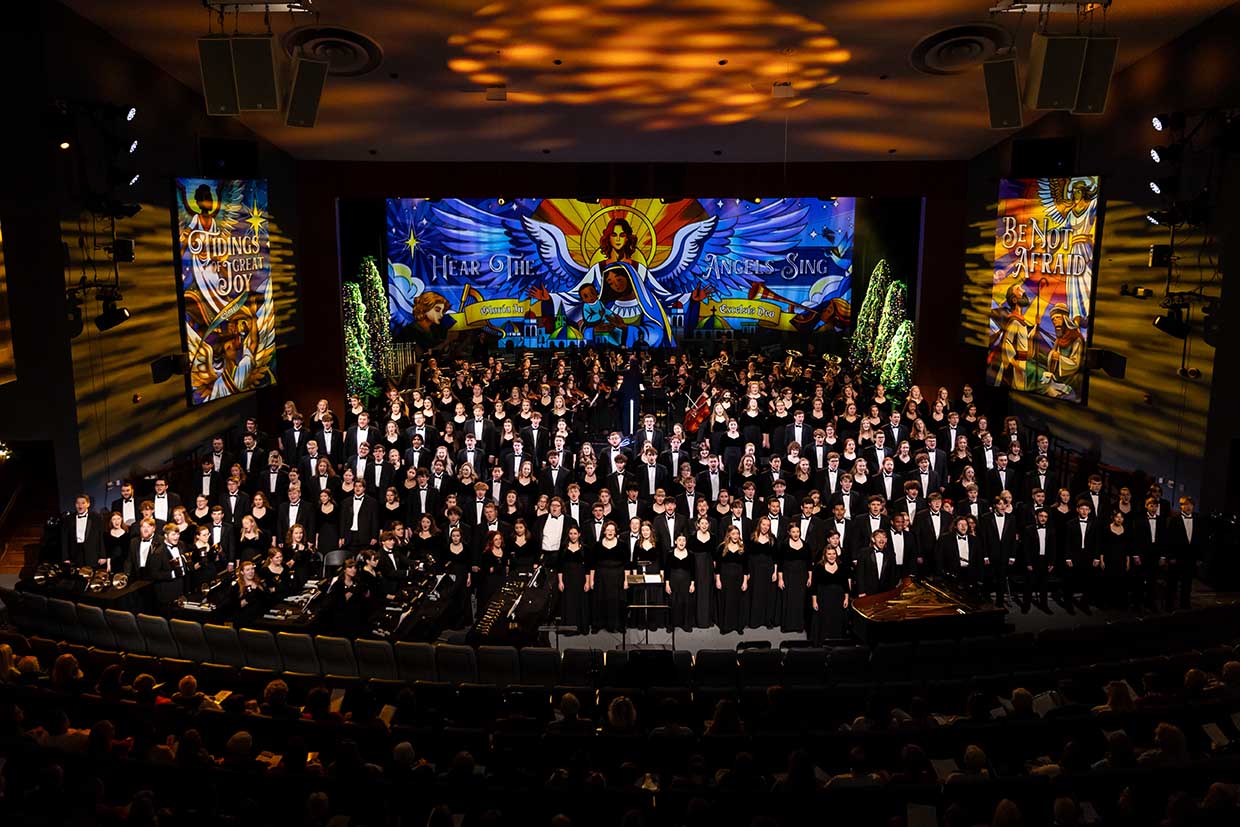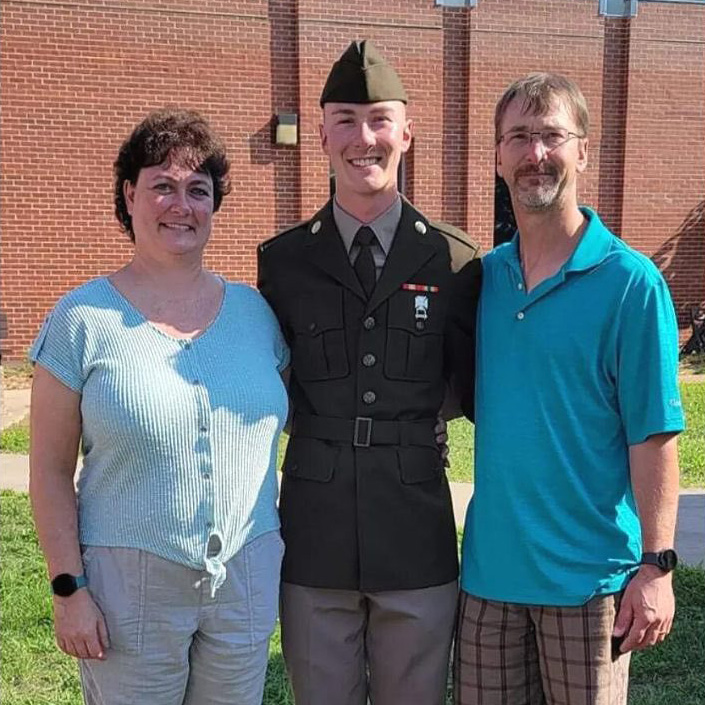
Music at Wartburg
Music is an important part of the Wartburg culture, with about one-third of the student body participating in an ensemble. Our students tour the U.S. and abroad with some of their best friends, perform in famous concert halls and cathedrals, and work with world-renowned composers. More than 6,000 people attend the annual Christmas with Wartburg performances in Waverly and Des Moines. Students do not need to be a music major to be a member of an ensemble, take private lessons, or compete for a music scholarship.
Department of Music
Wartburg College is an accredited, institutional member of the National Association of Schools of Music (NASM). Students completing the American Music Therapy Association (AMTA) approved music therapy degree program are eligible to sit for board certification by the Certification Board for Music Therapists (CBMT). Wartburg is the only private college in Iowa to offer the music therapy major and the only Iowa college that offers a B.A. in church music. Completion of the Bachelor of Music Education or the Bachelor of Music Education/Music Therapy degree leads to licensure in education in the state of Iowa.
100%
PLACEMENT RATE IN MUSIC
The Department of Music boasts a 100 percent job/graduate school placement rate for ALL graduates.
FOUR-YEAR
MAJORS
Wartburg offers four-year majors/degrees. This means one year less tuition and one more year of salary when compared with a state university.
First Year
IN THE CLASSROOM
Music education students start field experience in their first year.
ONLY PRIVATE
WITH MUSIC THERAPY
Wartburg is the only private college in Iowa with a music therapy degree.
Music Major Information
Ready for more?





